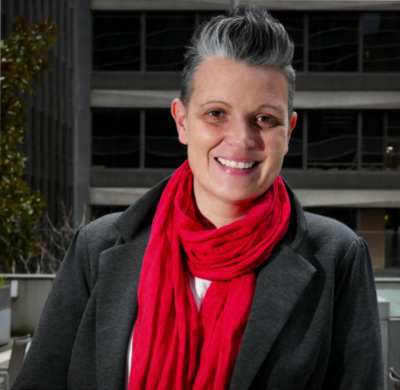
Attention governments: There’s more to giving out grants than handing over the money
Posted on 18 Feb 2026
Around 50 per cent of all funding for charities in Australia comes from government. The nature of…
Posted on 01 May 2025
By Jen Riley, chief impact officer, SmartyGrants

With the sector juggling restricted grants, tight timelines, high-stakes acquittals, and a must-succeed narrative, it’s no wonder many organisations default to “polished” reporting.
It’s not about misleading – it’s about survival. It’s about trying to be seen as worthy of support in a system that often equates complexity with risk, a system that makes it genuinely hard to communicate impact with honesty, clarity, and confidence.
So we report what’s safe. We soften what’s tricky. And we miss out on the real gold: the insights that would help us do better.

At a recent Queensland Council of Social Service (QCOSS) gathering, I shared this message with grantmakers and changemakers: we don’t need more data – —we need a better relationship with the data we already have.
If we want to shift the culture, we need to shift the conversation. That starts with reframing the way we talk about data.
Instead of “Subjective participant experience relating to interpersonal safety and dignity,” how about: “Did participants feel safe and respected?”
Instead of “Participant likelihood to recommend program to others,” try: “Would they tell a friend to come along?”
Plain language is not a downgrade. It’s an invitation – for your board, your team, your funders – to lean in and actually engage.
And when you combine the resulting data with context and a participant voice? That’s where real meaning lives.
“I walked in expecting to feel awkward and leave early. But I stayed the whole session. People asked my pronouns, used them, and actually listened. I didn’t know how much I needed that until it happened.” – Alex, 19
No bar chart can carry the kind of impact that Alex’s personal account does. Pair it with data, and it becomes a powerful insight, not just a number.
To the funders reading this: ask good questions. Make room for grey areas. Reward curiosity."

We often treat impact reporting like a finish line. But what if it were more like a feedback loop?
The organisations I see reporting their impact well are creating space for reflection. They’re experimenting with dashboards, yarning circles, even art. They’re designing reports for different audiences and using the 1-3-25 model to give everyone something they can actually use (one page of main messages, a three-page executive summary, and no more than 25 pages of findings).
They’re designing reports for different audiences, and using the 1-3-25 model to give everyone something they can actually use (one page of main messages, a three-page executive summary, and no more than 25 pages of findings).
Crucially, they’re transparent about their achievements and findings.
This isn’t a call-out. It’s a call-in.
To the funders reading this: ask good questions. Make room for grey areas. Reward curiosity.
To the not-for-profits: you’re doing hard work under complex conditions. Don’t be afraid to show what you’ve learned as well as what you’re achieved.
To all of us: let’s stop seeing data as a performance, and start using it as a tool for collective growth.
Because when we shift the culture of data – from fear to reflection, from proof to learning – we make it easier for everyone in the system to do better work.
For grantmakers who want more on impact without performance pressure, I recommend visiting simna.com.au and exploring how SmartyGrants is helping grantmakers to have braver conversations about data over through its new analytics tools.

Posted on 18 Feb 2026
Around 50 per cent of all funding for charities in Australia comes from government. The nature of…

Posted on 18 Feb 2026
You wouldn’t try to fix a complex system with one tool. You’d widen the toolkit, improve the…

Posted on 18 Feb 2026
Australia’s champion laundry van charity, Orange Sky, has announced it is ready to expand into…

Posted on 18 Feb 2026
To have any hope of hitting the grand plan of doubling philanthropy by 2030, Australia needs one…

Posted on 18 Feb 2026
When Nyiyaparli woman Jahna Cedar travels to New York next month as part of the Australian…

Posted on 17 Feb 2026
This is the full academic version of Dr Oksana King's thoughts on the need to better compensate and…

Posted on 12 Feb 2026
Our special NFP trends report distils the views of more than two dozen experts.

Posted on 11 Feb 2026
The ballooning cost-of-living crisis is affecting Australian families to the extent that many…

Posted on 11 Feb 2026
Rev. Salesi Faupula is the Uniting Church’s moderator for the synod of Victoria and Tasmania. Born…

Posted on 11 Feb 2026
Service providers have expressed cautious support for the federal government’s Thriving Kids…

Posted on 11 Feb 2026
Australia’s not-for-profits need strategic investment by the federal government to support the…

Posted on 11 Feb 2026
For the first time, charities commissioner Sue Woodward has confirmed the Australian Charities and…